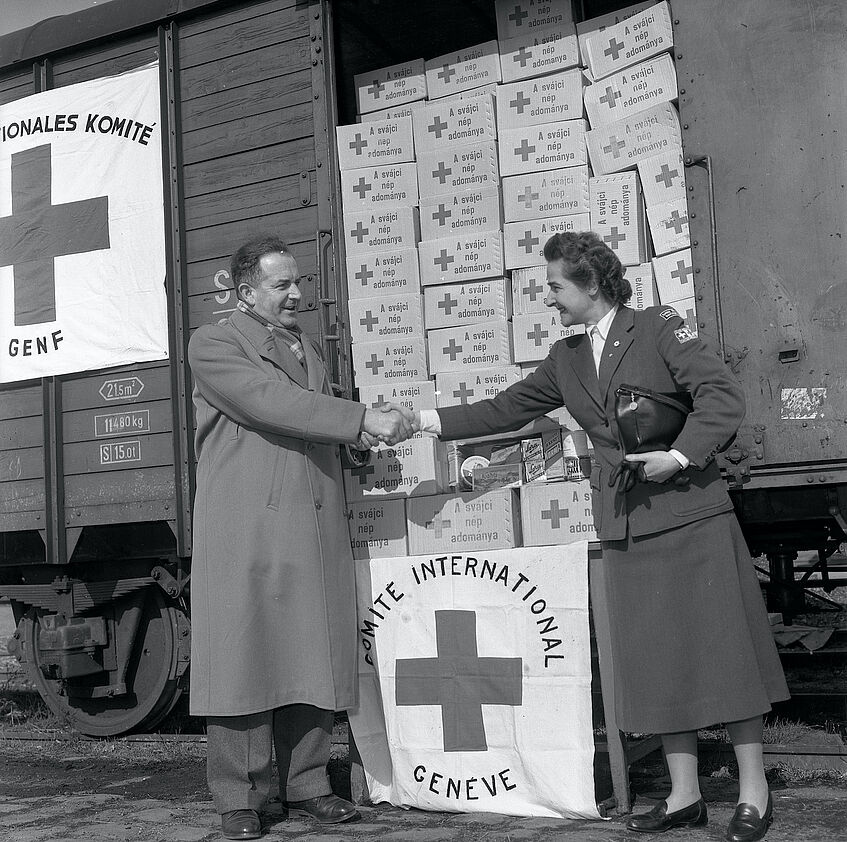Austria and Cold War refugees from the Communist Bloc (1956-1989/90). The work of NGOs and UNHCR (working title)

Hungary 1956-1957. Matzleinsdorf. Relief hand-over.
© V-P-HU-N-00018-07, S.N., ICRC Audiovisual Archives
Austria and Cold War refugees from the Communist Bloc (1956-1989/90). The work of NGOs and UNHCR (working title)
PhD project by Sarah Knoll, BA MA
Advisor: Univ.-Prof. Mag. DDr. Oliver Rathkolb
Funding: DOC-Stipendium der Österreichischen Akademie der Wissenschaften, PhD-Fellowship Literar mechana
Running time: 1.12.2017–31.5.2021
The PhD-project examines the five major “refugee crises” after 1945 (Hungary 1956, Czechoslovakia 1968, Poland 1981/82, GDR 1989, and Romania 1989/90) in a comparative way with a special focus on the work of national and international relief organisations. They were responsible for accommodation, assistance and organized the transit of refugees to other countries. Moreover, they were part of the global system to deal with “refugee crises”. As part of their efforts to find a place in the newly establishes refugee regime after 1945 their role must be critically examined. Especially the work of the United Nations High Commissioner for Refugees (UNHCR), the Intergovernmental Committee for European Migration (ICEM, today International Organization for Migration IOM) and the Organizations of the Red Cross Movement (International Committee of the Red Cross, International Federation of Red Cross and Red Crescent Societies, Austrian Red Cross) are under investigation. The project assumes that reactions of state, society and relief organizations towards the refugees were interconnected. The Cold War and global changes in the world economy constitute a significant background for the analysis, as they strongly influenced the recognition of refugees and Austria’s frequent calls for international support.
